Pope’s Catechesis: The visit of the Magi to the newborn King
Cycle of catechesis – Jubilee 2025
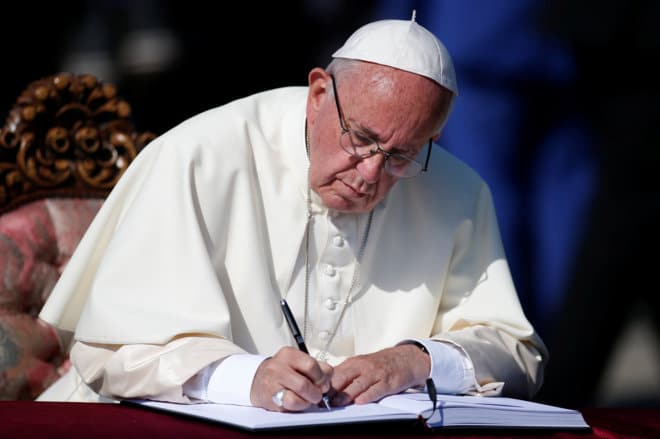
The text of the catechesis, which was scheduled for this February 19th at the general audience, was published by the Press Office of the Holy See: “the visit of the Magi to the newborn King”. The Holy Father remains hospitalized at the Agostino Gemelli Hospital following medical treatment to overcome the bilateral pneumonia he suffers from.
Below we publish the text of the catechesis of the Holy Father Francis prepared for today’s general audience, Wednesday, February 19th:
***
Cycle of Catechesis – Jubilee 2025. Jesus Christ our Hope. I. The Infancy of Jesus. 6. “They saw the child … They prostrated themselves and did him homage” (Mt 2:11). The Visit of the Magi to the newborn King
Dear brothers and sisters,
In the Gospels of the childhood of Jesus there is an episode which is exclusive to Matthew’s narrative: the visit of the Magi. Attracted by the appearance of a star, which in many cultures is the harbinger of the birth of an exceptional person, some wise men set out on a journey from the east, without knowing exactly where they will go. They are the Magi, people who do not belong to the people of the covenant. The last time we spoke about the shepherds of Bethlehem, marginalized by Hebrew society because they were considered “impure”; today we encounter another category, the foreigners, who immediately arrive to pay homage to the Son of God who entered into history with an entirely precedented kingship. Hence, the Gospels tell us clearly that the poor and foreigners are invited among the first to meet God made child, the Saviour of the world.
The Magi were considered to be representatives both of the primordial races, generated by the three sons of Noah, and of the three continents known in antiquity, Asia, Africa and Europe, as well as the three phases of human life: youth, maturity and old age. Aside from all possible interpretations, they are men who do not stay still but, like the great chosen ones of biblical history, feel the need to move, to go forth. They are men who are able to look beyond themselves, who know how to look upwards.
The attraction for the star that appeared in the sky sets them on the move to the land of Judaea, to Jerusalem, where they meet King Herod. Their naivety and trust in asking for information about the newborn king of the Jews clashes with the shrewdness of Herod, who, troubled by the fear of losing his throne, immediately tries to obtain a better view, contacting the scribes and asking them to investigate.
The power of the earthly ruler thus shows all his weakness. The experts know the Scriptures and refer to the king the place where, according to Micah’s prophecy, the leader and shepherd of the people of Israel should be born (Mi 5:1): little Bethlehem, and not great Jerusalem! Indeed, as Paul reminds the Corinthians, “God chose the weak of the world to shame the strong” (1 Cor 1:27).
However, the scribes, who are able to identify the Messiah’s birthplace exactly, show the way to others, but they themselves do not move! Indeed, it is not enough to know the prophetic texts to tune in to the divine frequencies; one must let them to enter within and allow the Word of God to revive the yearning to seek, the kindle to desire to see God.
At this point Herod, acting in secret, as do the deceitful and violent, asks the Magi the precise moment of the appearance of the star and incites them to continue their journey and then to return to bring him news, so that he too can go and adore the newborn. For those attached to power, Jesus is not the hope to be welcomed, but a threat to be eliminated!
When the Magi set off again, the star reappears and leads them to Jesus, the sign that creation and the prophetic word represent the alphabet with which God speaks and lets Himself be found. The sight of the star inspires an irrepressible joy in those men, because the Holy Spirit, who stirs the heart of whoever sincerely seeks God, also fills it with joy. Having entered the house, the Magi prostrate themselves, adore Jesus and offer Him precious gifts, worthy of a king, worthy of God. Why? What do they see? An ancient author writes: they see “a humble little body that the Word has assumed; but the glory of divinity is not hidden from them. They see an infant child; but they worship God” (CROMAZIO DI AQUILEIA, Comment on the Gospel of Matthew, 5:1). The Magi thus become the first believers among the pagans, the image of the Church drawn together from every language and nation.
Dear brothers and sisters, let us, too, follow in the footsteps of the Magi, these “pilgrims of hope” who, with great courage, turned their steps, hearts and goods towards the One who is the hope not only of Israel but of all peoples. Let us learn to adore God in His smallness, in His kingship that does not crush but rather sets us free and enables us to serve with dignity. And let us offer Him the most beautiful gifts, to express our faith and our love.
Related
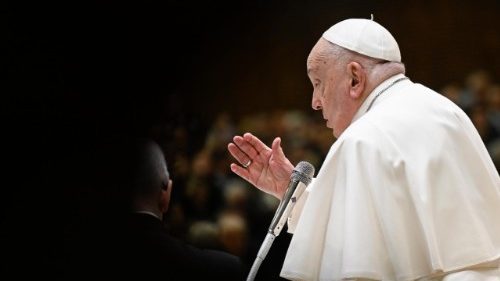
Pope Francis Improves and Prays for Myanmar Earthquake Victims
Exaudi Staff
28 March, 2025
1 min
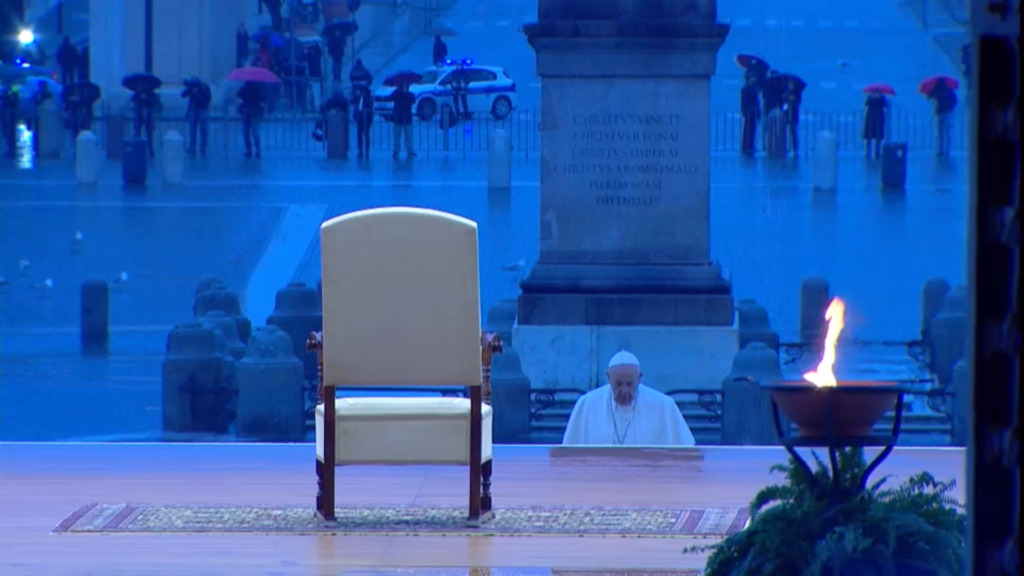
Five Years After Statio Orbis: Hope in the Midst of the Storm
Exaudi Staff
27 March, 2025
2 min
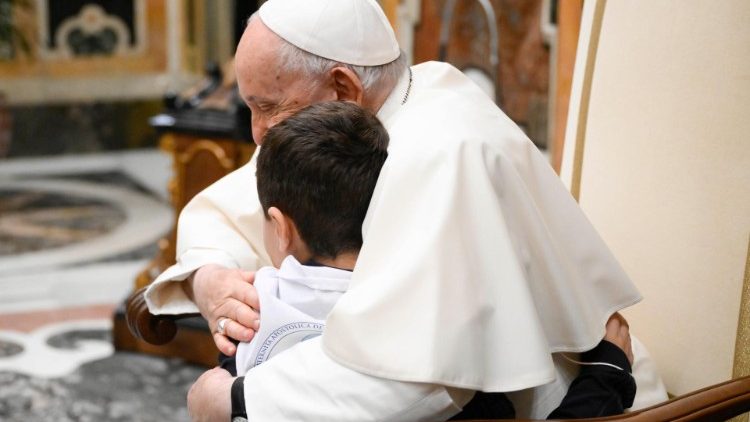
The Pope: May every child find a safe environment in the ecclesial community
Exaudi Staff
26 March, 2025
2 min
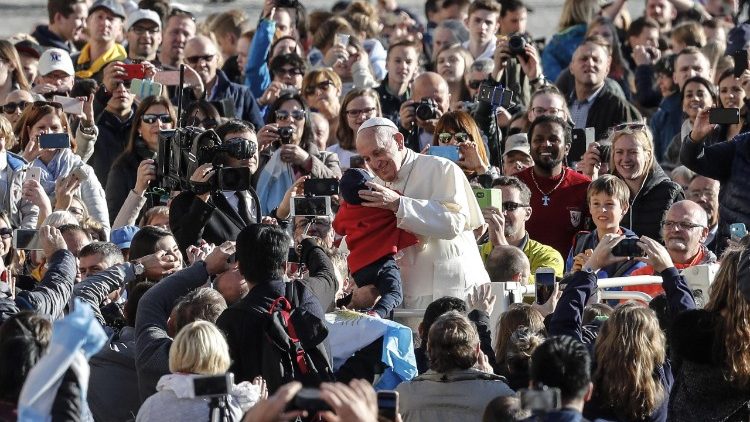
“God is mercy and always awaits us!”
Exaudi Staff
26 March, 2025
3 min
 (EN)
(EN)
 (ES)
(ES)
 (IT)
(IT)

